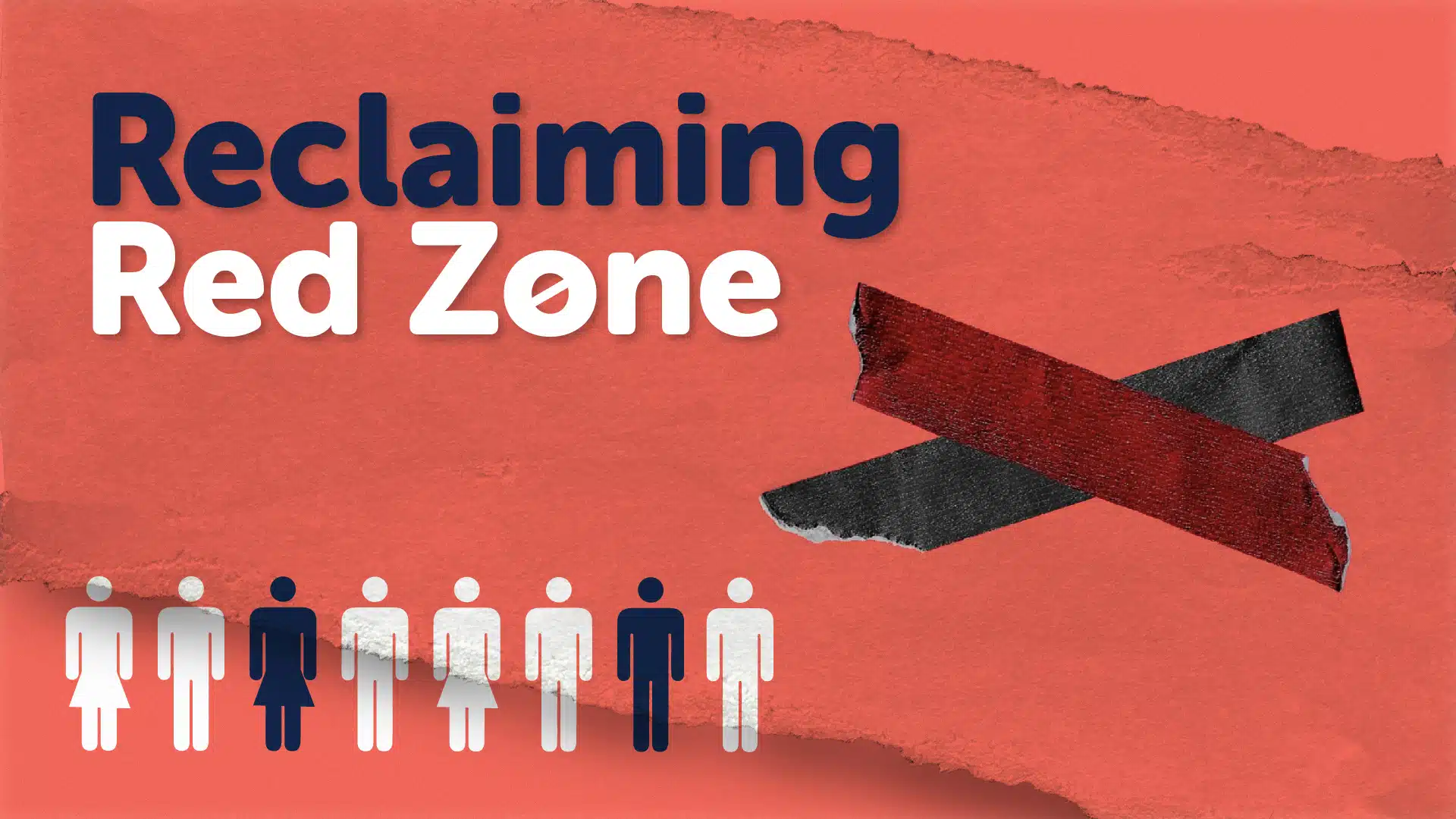Reclaiming the Red Zone

The “Red Zone” September 1 – October 10. It is the time period where students are statistically more likely to experience sexual assault and violence.
The start of every school year offers great promise, possibility, and potential for all returning students. However, it is during this time that students can also face immense challenges, like the stress of academic pressure, isolation in new cities, and unfortunately, violence. The start of the fall semester, from September 1st to October 10th, has recently been dubbed the “Red Zone” where students are statistically more likely to experience sexual assault and violence. Due to limited education about consent and sexual violence, increased partying between September 1 and October 10, and a multitude of other factors associated with young people entering an unfamiliar space, many students are faced with the terrible and jarring reality of the Red Zone – especially marginalized students. However, through proper education and awareness about this Red Zone, campus can be made into a safer place, free from sexual violence. Therefore, it is vital for students, and all campus members, to be made aware of the Red Zone, and reclaim this space.
Reclaiming the Red Zone means being an active bystander and fighting for change here in our own community. Upcoming opportunities include the Take Back the Night Rally on September 21 from 6 PM – 9 PM on Gaukel St. Kitchener. WUSA stands in support of this significant event and invites you to attend with us as a group. Meet us in front of the Davis Centre at 5:30 PM on September 21, 2023, and we will board the bus together. The event itself will run from 6:00-9:00 PM featuring a 1.3 km march through downtown Kitchener. To secure your spot on the bus, please make a reservation. The bus will depart at 5:45 PM and return to campus after the event, ensuring a safe and convenient way to participate in this impactful occasion. Join us on September 19th between 12:00 PM – 4:00 PM in the multi-purpose room of the SLC to make posters, pins and other crafts as we prepare for the march. Let your voice be heard!
For those that could not join us in person at the event, here is a video from the rally, and more information about the Red Zone.
Consent week begins September 19th as well, helping students to understand what consent does and does not look like.
According to RAINN (Rape, Abuse & Incest National Network), consent should be “… clearly and freely communicated. A verbal and affirmative expression of consent can help both you and your partner to understand and respect each other’s boundaries. Consent cannot be given by individuals who are underage, intoxicated or incapacitated by drugs or alcohol, or asleep or unconscious.” Consent is not continuing to engage with partners who are unenthusiastic, upset, or unresponsive; ultimately consent is all about informed and open communication between partners.
Resources:
At the University of Waterloo, we have several resources which can help nurture a culture where getting consent is a priority. If you know or are someone in a dangerous or abusive situation, please reach out to the Sexual Violence Prevention and Response Office (SVPRO), where you can find an extensive list of helplines, counselling services and safety related resources. WUSA also recommends visiting the Women’s Centre here at the University of Waterloo, where you can find a safe space for open discussions with an intersectional lens. They can also help connect you with resources about sexual health, healthy relationships, mental health, contraceptive methods, and more. We are also proud to feature a dedicated University of Waterloo Sexual Violence Task Force, in response to the provincial plan It’s Never Okay: An Action Plan to Stop Sexual Violence and Harassment, formed in March 2015. The goals of the task force are to create a campus culture where the impacts of sexual violence are understood and well responded to, and to create a campus culture where strong efforts are made to prevent sexual violence. The Human Rights, Equity and Inclusion (HREI) Office also works on normalizing dialogue about consent and exploring ways to engage in healthy, positive, respectful relationships with each other, while embedding consent in our daily practices.
Links to learn more:
https://uwaterloo.ca/campus-wellness/sexual-health#Consent
https://wusa.ca/services/student-run-services/womens-centre/
https://sexualhealthontario.ca/en/home
https://www.scribd.com/document/589989655/Our-Campus-Our-Safety#fullscreen&from_embed
https://uwaterloo.ca/human-rights-equity-inclusion/svpro
https://www150.statcan.gc.ca/n1/pub/85-002-x/2020001/article/00005-eng.htm
Published: Thursday, September 7, 2023
